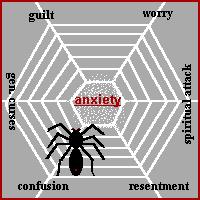In eating disorder recovery, you might discover that you have difficulty identifying and expressing your emotions. Perhaps you stuff your feelings because they make you uncomfortable or you simply have never learned what to do with them. But as you find ways to identify and express your emotions, this can help you in your eating disorder recovery.

You may have grown up in a home where you didn’t feel it was safe to express your feelings or perhaps you met people later in life who gave the impression that you should not show your emotions with them. Maybe others have been angry or critical toward you regarding the expression of your feelings. Your parents may have been so uncomfortable with emotions themselves that they never learned healthy ways to express them so they were never able to model this for you. It may be that they were okay with emotions, but for some reason you still got the impression that you should keep your feelings to yourself.
You might sometimes have difficulty identifying your emotions. That’s understandable, but need not keep you from expressing yourself. Perhaps it would help to review a list of emotions to see which ones jump out at you as you read them. Like anything else, it takes practice.
Something that might help you to both identify and express your emotions is to write in a journal. While journaling might not be for everyone, many find it to be helpful. Why not just give it a try? If it isn’t effective for you, you can always try something else. The nice thing about journaling is that there are no rules. You can just write whatever you feel and whatever you think and then just see where things go. You might find that your writing reveals thoughts and feelings you hadn’t even realized were there. Other ways to express your emotions might be to do something artistic or some other type of activity you enjoy that you can put your heart into. Or you might even find that certain physical activities are helpful to you when it comes to working out your feelings.
Of course, in Christian eating disorder recovery, you also have prayer as a way to express your emotions. You can utter any feeling you have to the Lord. He already knows what you feel anyway even if you can’t put it into words yourself. He understands you better than anyone, so He’s the perfect person to confide in.
Consider discussing with members of your treatment team and your support team ways to help you express yourself. They might have some really helpful suggestions. And make your feelings a matter of prayer. There could be no safer place to express your emotions than with the Lord.
